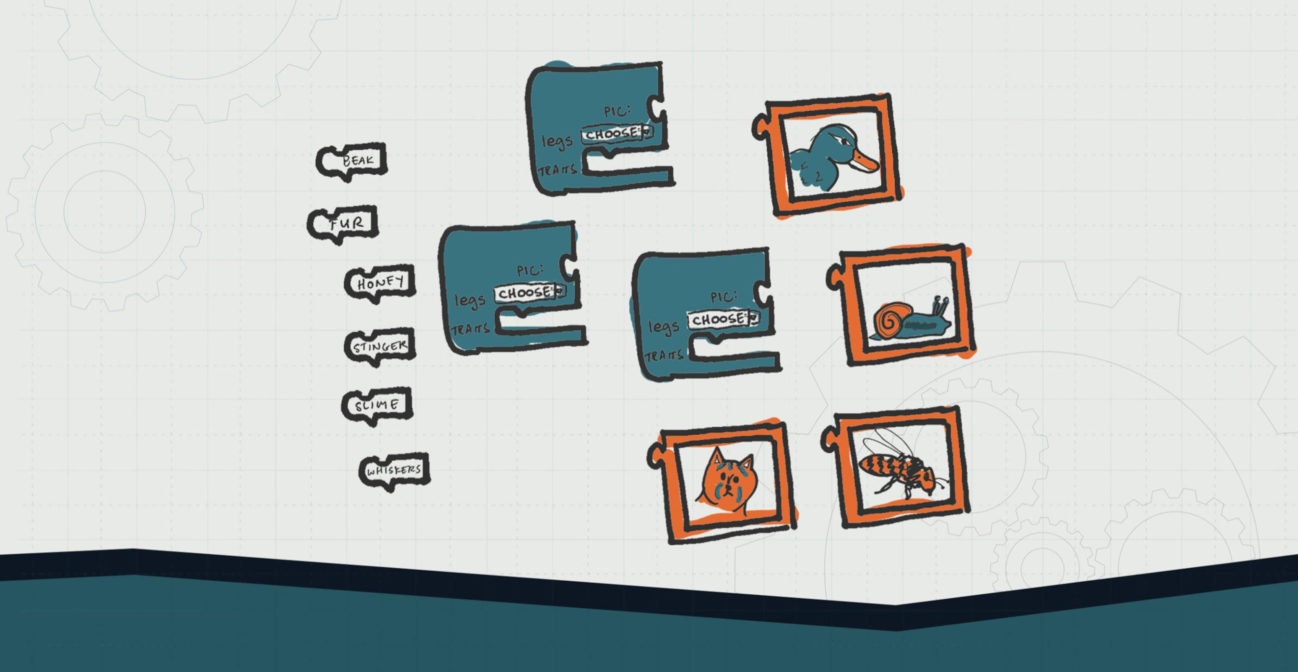Join us for conversations that inspire, recognize, and encourage innovation and best practices in the education profession.
Available on Apple Podcasts, Spotify, Google Podcasts, and more.

MIDDLE SCHOOL – LEVEL 1
Blockly games are a series of games that introduce the principles of coding to kids. They use blocks that mimic those used in Scratch. We will diving into Scratch-based programing in later lessons, so Blockly is a great place to start learning the concepts you will need.
MATERIALS NEEDED:
❏ Computer with internet connection
DIRECTIONS:
You will see that the games are all logic-based puzzles that have students working in a basic coding environment.
Students should spend time going through each of the categories and familiarizing themselves with the layout. Scratch is a coding language developed at MIT that uses a block-based drag-and-drop editor to generate code for game design and animations. After going through and completing the Blockly games, your students will be better-equipped to tackle the coding projects in later lessons.
OBJECTIVE: Students will be able to use Blockly to use iterative methods to systematically solve problems.
ESSENTIAL QUESTIONS:
1. Students will open blockly and play “Puzzle”
a. Students will understand the basic framework of Blockly and drag-and-drop programming
b. Have students report out on their findings
i. How do you complete tasks?
ii. How do you connect block commands together?
2. Evaluate
a. Problem-solving
b. Questioning
1. Students are tasked with getting through the maze levels using programming
2. Ask questions of students
a. Is there more than one method to complete a level? i. Give an example
b. What criteria do you use to determine the best approach?
c. What if constraints were set?
i. Levels will do this by setting number of blocks you can use
3. Students should share their approach with others as a means to evaluate various methods
a. Teacher may choose to do this process between levels (i.e. keep all students progressing together.
4. Teacher reviews criteria and constraints throughout the program
5. Students write out their approach to solving each task
a. What steps do they take to approach the problem
b. Is there an optimal way to solve all of the levels while maintaining the criteria and constraints proposed by the program?
i. Students should support this in a model (using words pictures and arrows)
6. Evaluate
a. Students responses to the questions
b. Engineering approach to meeting criteria and constraints.
1. Students use their developed methods to tackle additional programming challenges
a. Turtle
b. Pond tutor
2. Students should keep track and make revisions to their approach so that an optimal programming approach may be achieved
NGSS CONNECTION:
MS-ETS1-2. Evaluate competing design solutions using a systematic process to determine how well they meet the criteria and constraints of the problem.
MS-ETS1-4. Develop a model to generate data for iterative testing and modification of a proposed object, tool, or process such that an optimal design can be achieved.
COMMON CORE CONNECTION:
ELA/Literacy
RST.6-8.1 Cite specific textual evidence to support analysis of science and technical texts.
RST.6-8.9 Compare and contrast the information gained from experiments, simulations, video, or multimedia sources with that gained from reading a text on the same topic.
WHST.6-8.7 Conduct short research projects to answer a question (including a self-generated question), drawing on several sources and generating additional related, focused questions that allow for multiple avenues of exploration.
WHST.6-8.9 Draw evidence from informational texts to support analysis, reflection, and research.
Mathematics
MP.2 Reason abstractly and quantitatively.
7.EE.3 Solve multi-step real-life and mathematical problems posed with positive and negative rational numbers in any form (whole numbers, fractions, and decimals), using tools strategically. Apply properties of operations to calculate with numbers in any form; convert between forms as appropriate; and assess the reasonableness of answers using mental computation and estimation strategies.
7.SP Develop a probability model and use it to find probabilities of events. Compare probabilities from a model to observed frequencies; if the agreement is not good, explain possible sources of the discrepancy.
DOK:
Level 1: Recall
Level 2: Concept
Level 3: Strategic Thinking